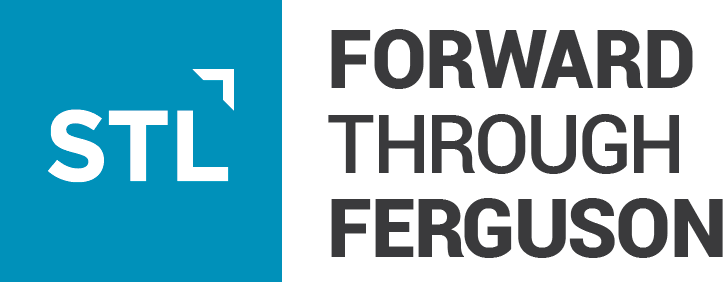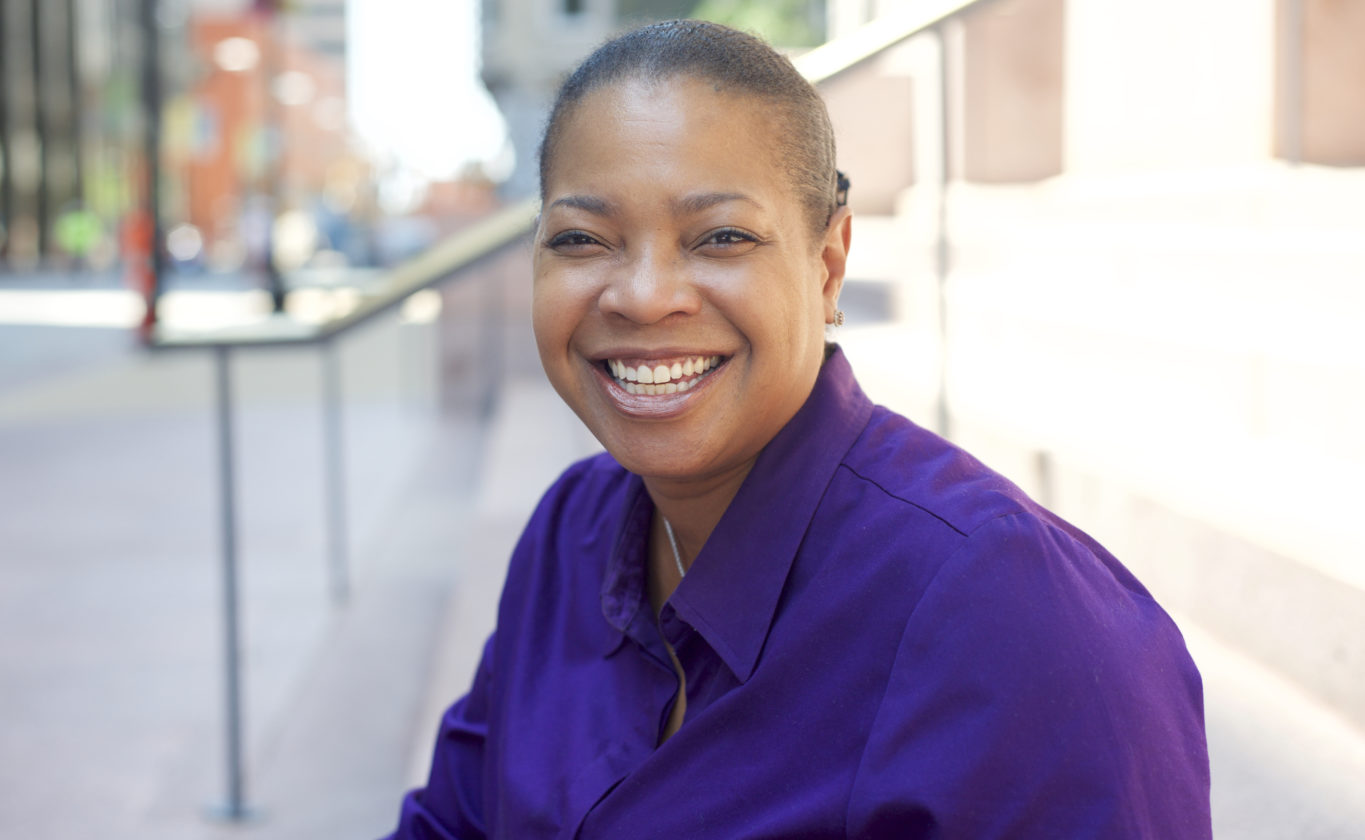We’re at a critical time to make a decision about who and what we are. I was bitter for a long time around this work — nobody listening, not doing the right thing, and continuing the abuses. And I have learned — because it’s been uncovered, because the scab was ripped off, because the blood was in the street, because the tears and the desperation and the anger splashed all over the globe — there are people in this community that didn’t know. I believed everyone knew what was going on and they were complicit, compliant, and supporting it. But I’ve learned that isn’t true. I don’t know how they didn’t know. But people have said to me, “I didn’t know.” Well, now you do. Now you know.
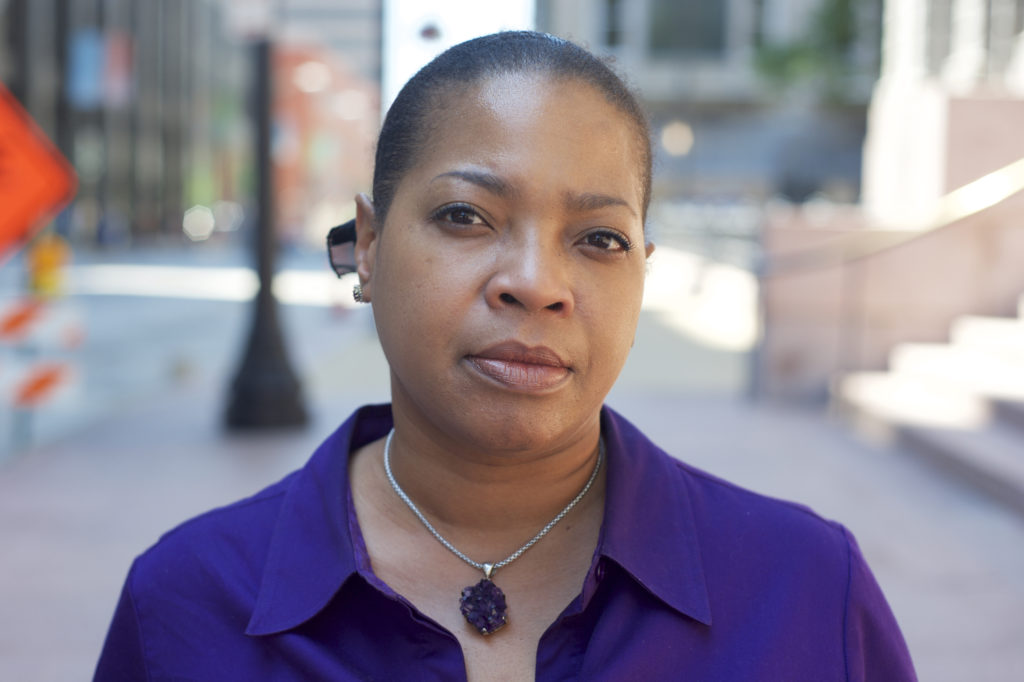
Commissioner Felicia Pulliam, Photos by Lindy Drew
People ask, “When was your first moment when you realized racism exists?” I had a friend in first grade, and one day she didn’t sit with me at lunch. I went to the playground and I thought we would play, as we typically did, but she told me she couldn’t be my friend. Her brother told their parents she was playing with a Black girl and she wasn’t allowed to do that anymore. I was shocked. Then I just stood there on the playground by myself. You don’t know what to do with that when you’re six. Even as an adult, I am still sad for my little girl self in that moment being so alone. Well, my parents knew what to do with that and got us prepared: “Okay. This is the world we live in. Let’s get them ready.” So I’ve been conscious of it all of my life. I knew I had to make my children aware of it and I did. It’s very unfortunate. What if I didn’t have my parents? What if I didn’t have my family to scoop me up, love me through that, and pour into me the value and beauty of who I am, who I was created to be? I see broken, shattered human beings all around me, and I think it may have started when they were six. I study them, looking for wounds. Some people have covered theirs quite carefully. I see them though. I know but for the grace of God, that could be me. But it didn’t happen to me. I am bruised, but not broken.
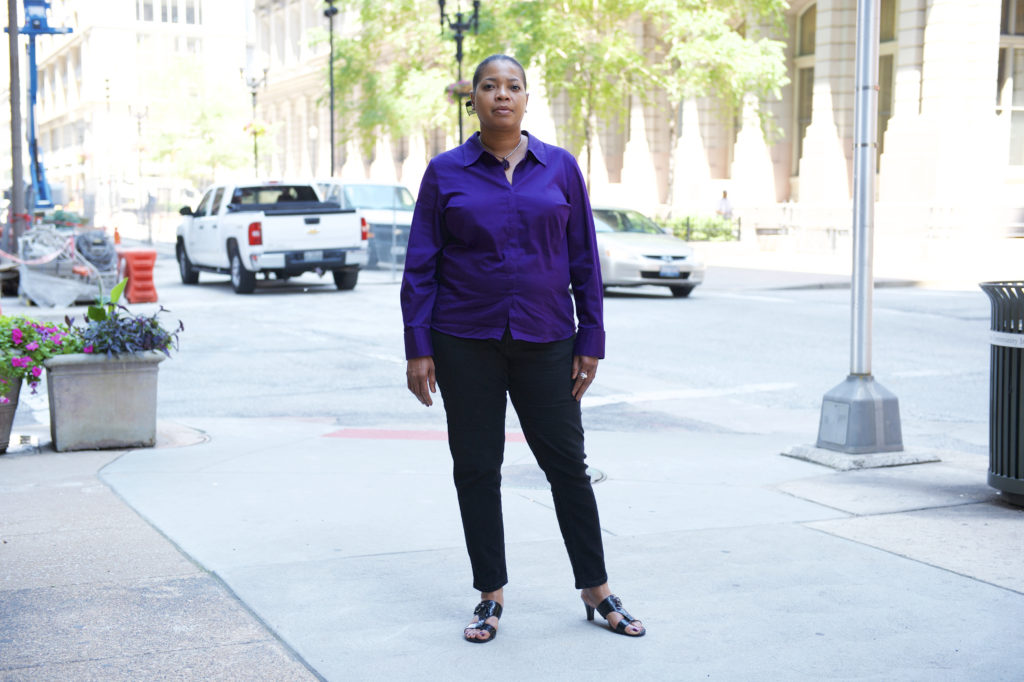
Poverty is a plague. It robs people, communities, and this country of its potential. It’s the root of our problem. These pockets of poverty were formed through policy and practice and the culture of our community that drove folks into these conditions, and how difficult it is to just maintain, not survive, definitely not thrive, but exist. It’s disturbing and something I’ve been uncomfortable with for a long time. I recognize in my communities that are so distressed, that there are remarkable, resourceful, really talented people, and they have an ability to take nothing and sustain life with it. Our neighbors who are undereducated, underemployed, stressed, and ill from the conditions of their lives have to understand that the Ferguson Commission is working on their behalf. And the CEOs and CFOs, all the C-suite people, need to see themselves in this work as part of the solution, too. We’ve got to be grassroots and grasstops.
One of the things that has been rewarding for me is sincerely recognizing and valuing the assets in community and authentically consulting and working in the most distressed places: Hamilton Heights, Wellston, and City of Kinloch. To understand Ferguson, you must understand Kinloch. It’s the poorest community in St. Louis County, and over a decade the community worked toward a municipal restoration project hinged on the anticipated success of the North Park economic development program along the eastern perimeter of Lambert International Airport. It was to create a commercial district there over 30 years ago. The jobs that were to be created there benefiting from its convenience and ample highway access because it’s prime property, arguably the best regional location, were key. I was really hopeful about that development. We struggled to bring it to fruition because the City of Kinloch was contributing over half of its municipal landmass to this effort. Four-hundred people, basically an extended family of poor African-American people, fought private interest, the City of St. Louis, St. Louis County, the state of Missouri, and the federal government. And they did not make good on their promises. Sound familiar? Promissory note marked insufficient funds.
The government dismantled that historic community. It scattered people, destroying the network of neighborhoods that were never rich economically, but had a remarkable ability to nurture human beings and some that we know are quite significant in their influence and their work — Senator Maxine Waters, Jennifer Lewis, Dick Gregory. They all came out of Kinloch. That community knew how to take care of its most important resource — human beings. And it did an amazing job. Place matters.
You know what’s empowering? To have people say they want to help.
The people who were supposed to redevelop that community didn’t do it and had no interest in making that happen. We had a lot of successes, some failures, and it was an incredible fight. People would ask me, “Felicia, why do you care? You don’t live there?” I was stunned by the question. They would actually ask me, “Why does it matter to you?” My answer? “First, I’m Black, in case you haven’t noticed. You’re doing this to Black people and so I care. Second, this is what the contract obligates you to do. You agreed to redevelop this property at the best and highest use, which is commercial use. There should be millions of dollars generated in this place on behalf of this community, what’s left of it, that was systematically destroyed. I care that justice is meted out, and I care that these are human beings. These are real lives. I don’t understand why you don’t care? It is wrong and it’s my responsibility to try to do something about it. Because it matters. It’s no coincidence to me that this movement is ‘Black Lives Matter.'”
So, here we are. To understand Ferguson you need to understand Kinloch. And Meecham Park. And The Ville. The systemic dismantling of Black communities is an effort to strip Black people of their right to citizenship. Remember, the rights of citizenship protected in the Constitution were originally attached to land ownership. Black people have had a very difficult time owning and keeping land in this country. Every time we get anchored in a place on our land in community pursuing the American dream, the ground is literally stripped away and we have to move and start over again and again and again. How do you expect a people to make progress when they are continually starting over?
people have said to me, “I didn’t know.” Well, now you do. Now you know.
When I saw Mike Brown in the street for four and a half hours, knowing what I know about the power structure in this community and how they felt about my community and what they thought they could do — because they had been doing it successfully to their benefit to their advantage for decades — I knew what they were saying. The wound opened in me again and I got mad again. I just watched that and thought, “How dare you.” They were sending another clear message that we simply don’t matter. But this time, the whole world got to see what they have been doing to us for decades. People have been fighting against these conditions with no assistance, with no advocacy, and no support. So, it’s not new. It seems the power structure here has been impenetrable, until now. This time, out of pain and hopelessness that found a home in the spirit of young people, this new civil rights movement was born. That’s heartbreaking for me.
Young people believing they just don’t have a future or anything to lose said, “You will see and hear me.” I am so proud of them, that they were able to do what elected, appointed, selected leadership should have been doing for decades. So when Ferguson exploded, I said, “Do you hear me now? Do you hear me now?” If leadership had done the right thing, taken the right road, and if those who were responsible to do what they promised to do, what they were contracted to do, what they were obligated to do in Kinloch had done it then maybe this could have been avoided because the jobs would have been there. New homes, affordable homes would have been there. Tax dollars would have been created to support the school district that continues to struggle to educate and nurture our children’s talents. Opportunity would have been there a decade ago.
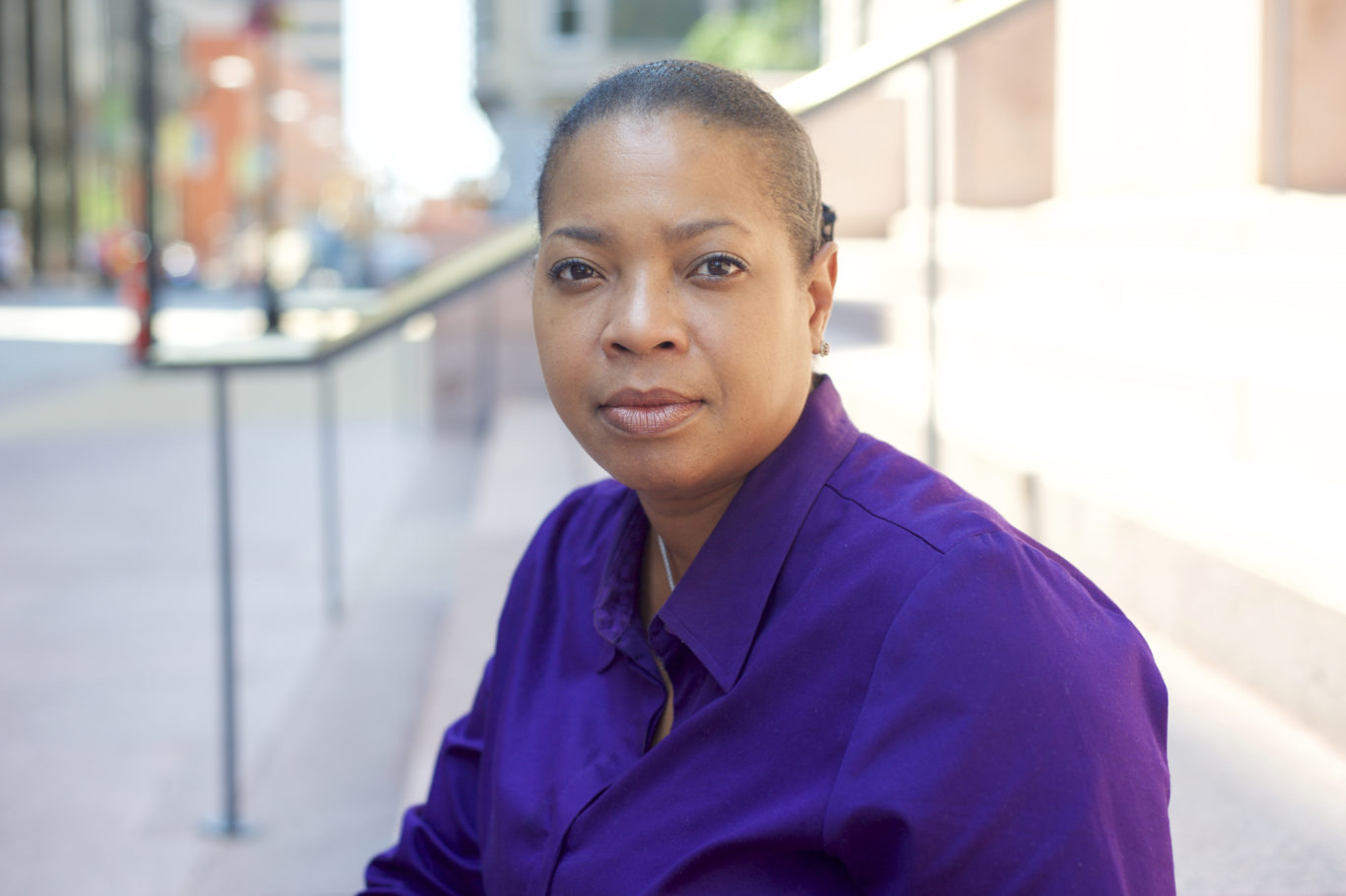
I am tired of conversations that sound like, “Well, if only those people would organize their community. If only they would be better parents, be engaged, get a job, and be responsible. If only those people…” Well, every time we get it working, it’s taken apart and families are scattered, businesses disrupted, institutions and lives dismembered. White neighborhoods have a history of policy working in their favor. In neighborhood’s that have all of the policy and all of the practice and all of the wonderful incentives to support your work, in your arrogance, you believe you somehow are much better than these people, not recognizing the unearned, generational benefit that has come to you, flowed to you, often from poor Black communities. So it is the dehumanization of my family, friends, and neighbors, and the inability of people who are charged to serve them — whether you’re a police officer, a municipal judge, an alderperson, a mayor, if you work in economic development, if you work in social services – you were charged to serve everyone. But you don’t even see them.
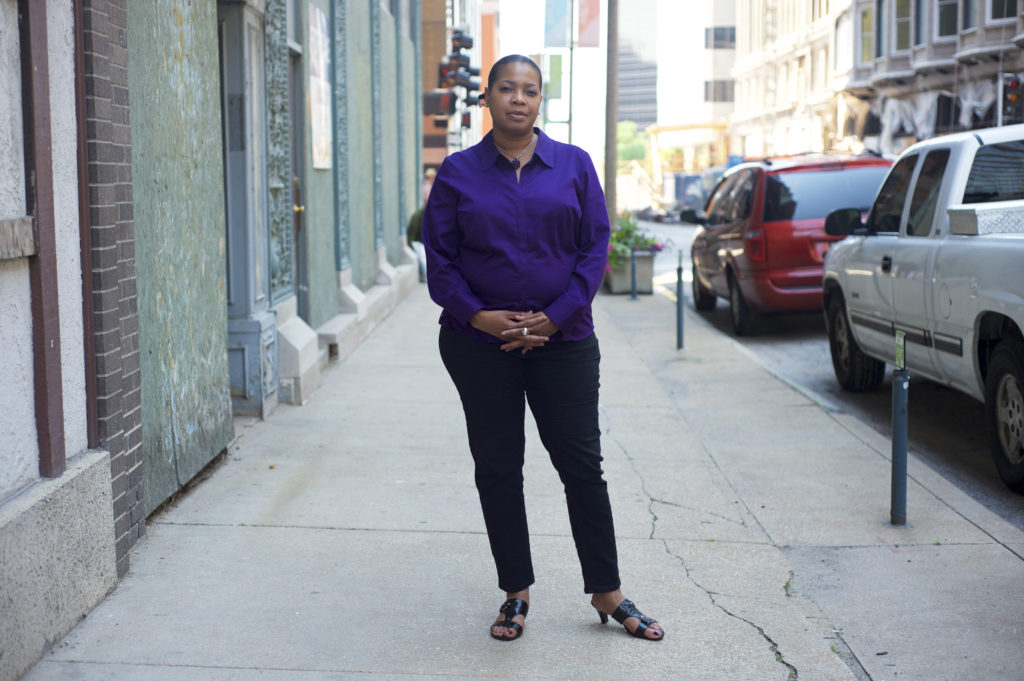
For those who say they’re not affected or don’t care, they’re not connecting the dots. They don’t know they’ve been affected because they haven’t felt the impact yet. They’re just not paying attention. They don’t hear our institutions saying people don’t want to come and study here. They don’t hear we have a regional priority of innovation and entrepreneurship when we are pushing all of these resources into innovation to create new things, especially around STEM and IT. We can attract people, but we can’t retain them. It’s not that we don’t have a bunch of smart people here. But with all of the institutions and resources that we have, this should be one of the smartest cities in the country.
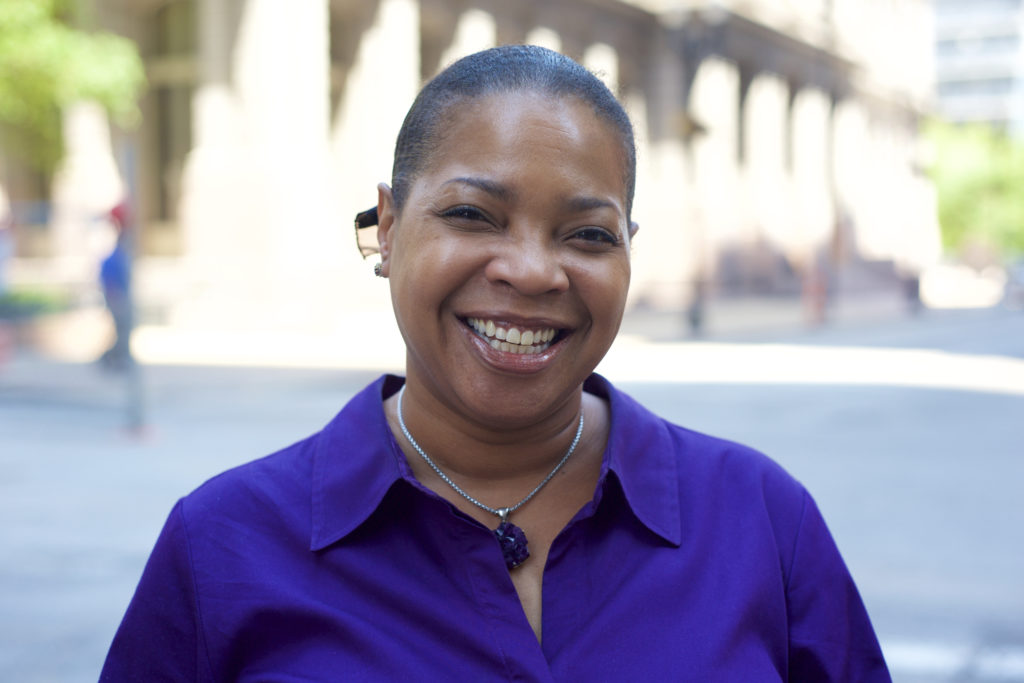
I love the blues. If I get a good dose of the blues, I’m feeling pretty good! I might not have to go to service on Sunday, which I don’t skip often because I don’t want to miss anything happening at Friendly Temple. I love my church home. And I love the blues. It came out of Kinloch, it came out of Ferguson, it came out of dirt, out of desperation, and out of hope and healing. Our own way of speaking about our reality birthed a new genre. It transformed and stretched and continued to talk to us about us, and gave birth to jazz and rock, and everything that we love that is American music came out of my people’s struggle to survive in this country. Look what the blues gave us out of that pain and exclusion — a whole new way of thinking and expressing. There’s not a musician in the world who doesn’t respect it, because it’s the foundation of jazz, rock, and rap. What if we didn’t have the blues? Can you imagine your life without jazz or your teenage years without rock or rap? Blues is the beginning and critical to the evolution of music globally. Black folk have shared so many wonderful gifts with the world. It doesn’t make sense that we don’t nurture that potential. So when we don’t invest in these communities, when we don’t recognize that there’s genius and innovation, when we don’t see possibility there, what are we squandering? Just what have we lost? Did we lose something that’s as critical to who we are creatively as the blues? I hope not, but we don’t know.
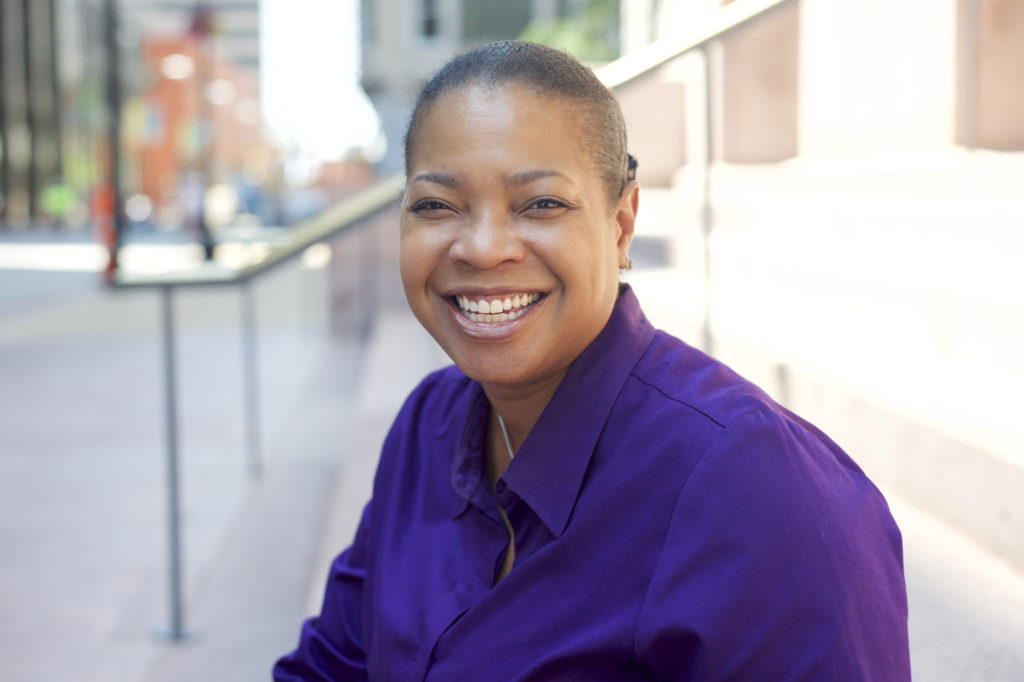
You know what’s empowering? To have people say they want to help. “Yes, I’ll share that information. Of course, I’ll do that research. Look what I’ve uncovered.” I can give voice to that. Watching the team actually get a little bigger. We need a new audience, we need to broaden our audience, and more people need to hear this. Those folks who say their life hasn’t changed, they haven’t been impacted, and they don’t recognize. We’ve got to get it together. We’re just not going to be able to compete and win like this.
We’ve got a lot of whales in this town. Being a whale in a pond is a pretty pathetic way for you to believe that you’re strong and empowered. Whales swim in oceans. And if that’s what St. Louis decides that it wants to be — a pond that’s not competitive, that’s not relevant, that’s not significant — then, okay. The community can make that choice. But understand the choice you’re making. And if we want to be something else, which I think we should, we have the ability to do it. We have the foundation. We really do have enough brains in these good institutions. We just need a cultural shift.
I thought this time, on this Commission, I have a team, people are looking, they are watching, and this plague of poverty, maybe this time we can create an antibiotic to fight this disease. The only reason that people are listening, are paying any attention, is because they’re finally recognizing the interconnectedness of community. I’m grateful to have an opportunity to continue in this work, and I hope this time we summon the courage, strength, and will to get it done. We can do this. Policies, practices, and people in power created the condition. Policy, practice, and people can correct it. The ship just got off course. So everybody needs to get in the ship, get an oar, and get to rowing.
